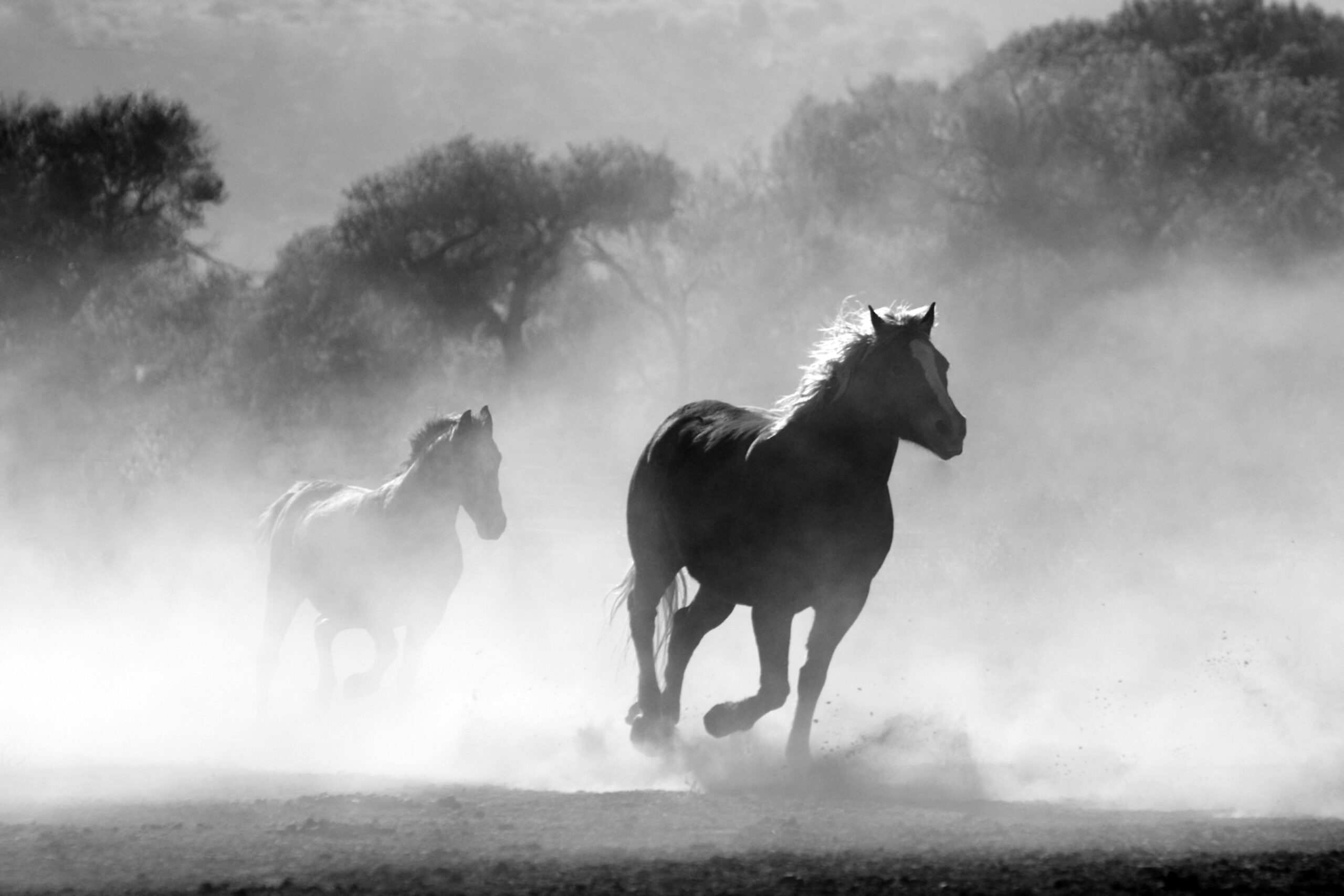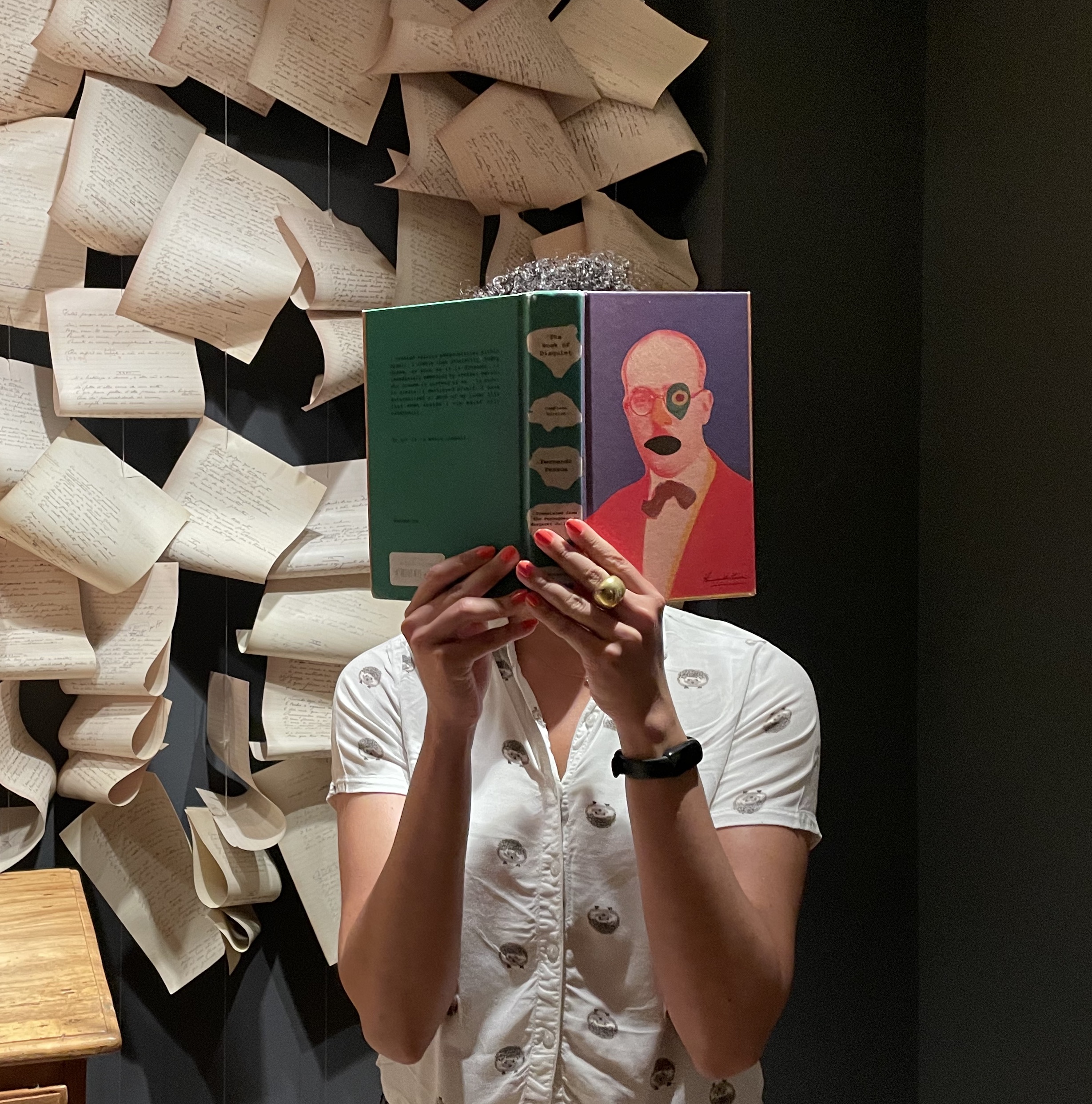My horse was called Emmy, short for Emerald Star. Dad’s more mature, larger mount was named Sassafras, which he shortened to Sassy. If we hadn’t taken these girls home, they’d have been shipped to the glue factory.
A pony may be the birthday wish of many young girls, and I was no exception, but in our case owning horses was also the long-deferred dream of my father. A West Coaster who’d transplanted himself to Maine from Los Angeles to escape drastic population growth and live closer to the land, in an echo of his childhood on a Colorado dirt farm, Dad had yearned for years to go trail riding around our property. By the time I was thirteen, we finally had a barn (designed by Dad) to store hay and shelter animals, and I was old enough to share in the horses’ caretaking. It was the perfect moment to begin our joint adventure.
But one thing held us back. Emmy and Sassy were Standardbreds, retired from the harness-racing track. This meant, on the one hand, that they were affordable; we paid for them by the pound. What we didn’t know was that Emmy and Sassy moved with an odd gait. In harness racing there’s no jockey; instead the horse pulls a two-wheeled cart called a sulky, which is steered by a driver. Standardbred harness racers are trained to pace, a mode and speed somewhere between a trot and a canter. Our job, we soon discovered, was to break the horses of their pacing so that they could be properly ridden.
Retraining Emmy became the promise and bane of my weekends. Every Saturday, I’d head to the barn, and instead of saddling her up for a free-flowing ride with the wind in my ponytail, I’d get out the whip and the lead and run Emmy in circles, correcting her whenever she fell into pacing rather than trotting.
I quickly grew bored.
Why couldn’t I be more like my father, whom everyone called a Renaissance man? Having attained his PhD using the GI Bill, Dad was a psychologist by weekday and a farmer the rest of the time. He fed our family with what he grew and raised, including putting up food for the winter by canning and freezing. He was an excellent carpenter. He could navigate with a compass and name most of the trees in the forest. He could ride a horse with ease, even if it was the less rule-bound, Western way. At night, he read the Encyclopædia Britannica.
Some weekends, if I complained sufficiently, Dad would shrug and suggest we just go for a ride, gait be damned. Then I would rush to the barn and saddle Emmy up, a ritual I enjoyed nearly as much as riding. I’d kick my way through the unfenced chickens to get to the tack room, take down all the softened leather equipment, inhale its rich scent, and excitedly layer on the sleek English saddle, fit the bridle, and finally swing myself up into a position of omnipotence.
To be high up on top of a horse, I felt invulnerable, exhilarated. The change in perspective—looking down on the hen-pecked chickens from a lofty remove rather than scrumming among them—did my young teen self a world of good. I was in charge, poised.
Dad would confidently saddle up Sassy in her Western gear—chunky stirrups and a deep, comfortable seat—and we’d set out together. Despite our different riding styles, Dad and I were temperamentally similar—both naturally reserved, inclined to go about our business quietly—and we found comfort in this weekend ritual.
The reality of our rides, though, plodding over rough trails in the brambly Maine woods, or maneuvering around the garden and apple trees, never quite matched my fantasy of unleashing a horse’s power over an open plain. We did not, after all, live in the English countryside. No servants maintained clear carriage trails. Never mind my own shortcomings as a rider, that I hadn’t put in the work required to train Emmy to be responsive to my inchoate wishes.
Still, I loved caring for our horses. Dad was the one to wake early on winter mornings and break the ice in their water buckets, but I did the grooming: the brushing, the scraping, the cleaning of hooves. I found it calming, looking into Emmy’s large, dark eyes and feeling her pulse beat through her muscled body.
When I think back on the hours of effort I grumpily, and fruitlessly, poured into breaking Emmy of her pacing, I wonder why I bothered. I wasn’t entering any dressage competitions; the horses were solely for our own pleasure. Dad, with his rural, one-room-schoolhouse upbringing, did not care about conforming to some abstract standard of proper riding. If he had, he wouldn’t have bought Standardbred horses in the first place. But he did care about method and effort and an elegant end result—not for showing off, but for its own satisfaction. I think he became convinced that I’d have a better riding experience if Emmy were broken and retrained. He had found a local trainer; all I had to do was put in the work.
I tried, for a while. But gradually I abandoned my task and let myself be swept up in soccer and the inevitable dramas and yearnings of high school life, my horse time every year a little bit less.
I was sensitive to not succeeding at the goal before me, though.
I wanted to retrain Emmy to improve my riding, but also to accomplish the project I felt my father had implicitly set for me. He was good at so many things, and I sorely felt my lack.
Growing up, I thought Dad’s skills were innate talents. These were things he could simply do. What I didn’t see, because it was out of view or because I was too self-absorbed to notice, was how much he tried.
In the end, we kept Emmy and Sassy for just a handful of years. With high school sports and academics, I didn’t have much time for projects that bound me to the farm, and then I went to college, and Dad lost his riding partner.
He soon retired from clinical practice and expanded his cultivation of fruit and vegetables. He also developed a second career as a teacher, designing and offering courses on science and religion to central Maine’s retirees through the local university system.
At the end of Dad’s life, I was responsible for clearing out his books and papers and twenty years of course syllabi. My task was to cull the books to a reasonable selection he could take with him to the new house in town that my mother had bought for them. Over a series of fall weekends, I’d take a book off the shelf and hold it up to him as he sat, thin and hunched, on the couch.
“Dad, what about this one, Daniel Dennett’s Consciousness Explained?”
He paused, rubbed his chin, and, excruciatingly slowly, summarized Dennett’s theory of consciousness.
I looked on the back of the book. “Yes, exactly.”
This pattern repeated for each book I showed him. I grew impatient, because I felt the pressure of the yards of shelves that remained unsorted. At the same time, I marveled. How did he remember the main arguments of all these books? Then, flipping through, I noticed that they were meticulously underlined and highlighted. He hadn’t simply read the books; he’d taken copious notes. Wedged into some of the pages were detailed outlines he must have used to cement his own learning as well as for teaching.
While he napped, I pawed through various other boxes, stuffed to the brim with printed emails and newspaper articles. In one box, I found several pamphlets about how to identify trees commonly found in the Maine forest. It struck me, suddenly, that my father, once he moved to Maine from California, had deliberately set out to learn new flora and fauna. Of course he had. One is not born knowing how to distinguish a pine from a fir. Yet somehow I had not appreciated how much effort had gone into Dad’s attempts to understand the world around him.
I began to sift through my memories, recalling in more detail his complaints and frustrations about projects that had not gone according to plan, that had required another trip to the hardware store to buy a different-sized screw or to seek the advice of the fix-it men who worked there. He had spent years trying to rig up a mechanical arm that would lift heavy items up two floors into the hayloft using a series of pulleys, and in truth it never worked well.
As a farmer, he was always ordering new pest antidotes, copper spray or bacterial agents like Btg. But somehow, in the past, when I heard him talk about the doggone Japanese beetles, I didn’t realize that he truly didn’t know if his attempted solutions would work. Sometimes they did, and sometimes they didn’t. But setbacks never stopped him from trying again.
I hadn’t failed to retrain Emmy. I had given up.
Was my father disappointed in me? He wouldn’t have cared whether I met the expectations of some stuck-up horse lady, but he wanted me to enjoy riding. The horses were also a hobby we shared; Dad was an older, reticent man who communicated more through his actions than spoken words. My lack of effort undercut our ability to ride together, and this loss of our joint horse time I still regret.
There’s a picture of Dad and me in the back field, holding our horses by their halters. It must be spring, because the grass and trees are light green, not the lush, dark color they develop in summer. We’re wearing rain gear, and the air looks misty. To the right of the frame is the barn, topped with a copper weather vane in the shape of a prancing horse, which, in a rare extravagance, Dad had commissioned from a local metalworker.
This was Dad’s world: the barn he designed; tools hung from nails on the walls; drill bits and screws and bolts stored in rusted cans and peanut butter jars; the ancient, gnarled apple trees he grafted and coaxed into production; the rows of corn and Japanese-beetle-beleaguered potatoes; the raspberry patch he was constantly moving to find the right combination of sun and soil; the workshop whose menacing table saw nearly ripped off his thumb one year. Every inch of that property was a testament to one man’s industry, achieved through trial and error.
My natural gifts are fewer than my father’s, my range of skills and efforts narrower. I can’t build anything out of wood, and I’m too impatient to take notes as I read new arguments and information. But, through his example, I have come to believe that a magazine is a kind of garden, in which seeds are planted and effortfully brought into the light. Dangers and errors abound. We misread the weather; a crop fails. Winds change direction suddenly. All we can do is let our love guide us and adapt. We try again and again, because, even more than reaping the harvest, we want to grow in good company.
—Jennifer Acker
Washington, Maine
August 2025
Jennifer Acker is founder and editor in chief of The Common and author of the debut novel The Limits of the World, a fiction honoree for the Massachusetts Book Award. Her work has appeared in The Wall Street Journal, Oprah Daily, The Washington Post, Literary Hub, n+1, and The Yale Review, among other places. Her second novel, Surrender, will be released in April 2026.



